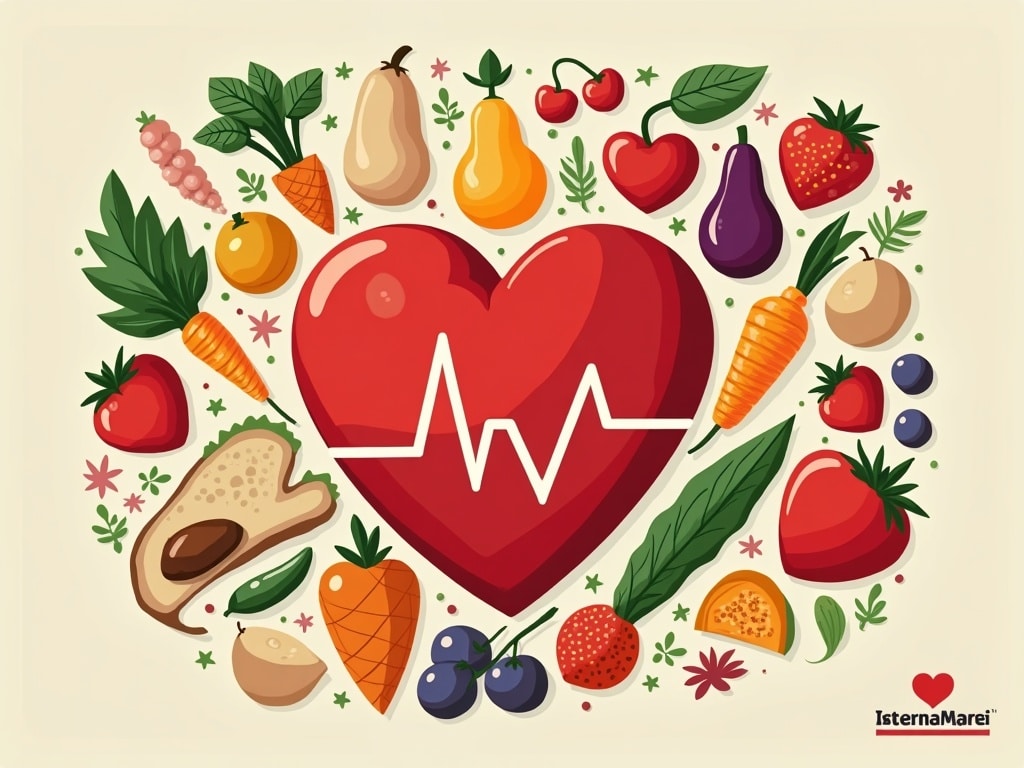Foods to Avoid for Heart Health: Protecting Your Most Vital Organ
Imagine your heart as a tireless marathon runner, relentlessly working to keep you going, day in and day out. Now, picture feeding that runner a diet of greasy burgers and sugary sodas. Not a winning strategy, right? Just like an athlete needs optimal fuel, your heart thrives on a diet that supports its function. Unfortunately, the modern diet is often filled with temptations that can sabotage your cardiovascular well-being. Knowing which foods to avoid for heart health is crucial to keeping your runner in peak condition.
The Culprits: Unveiling Harmful Food Categories
The journey to a healthier heart begins with identifying the dietary villains. These aren't just occasional indulgences; they're the staples that, when consumed regularly, chip away at your cardiovascular health. Let's break down the major offenders.
Saturated Fats: The Misunderstood Menace
For years, saturated fats have been demonized, and while the picture is nuanced, moderation is key. These fats, primarily found in animal products, can raise LDL (bad) cholesterol levels, increasing the risk of plaque buildup in your arteries (atherosclerosis).
- Red Meat: Steaks, burgers, and processed meats like bacon are loaded with saturated fat. Opt for leaner cuts or substitute with poultry or fish.
- Dairy Products: Full-fat milk, cheese, and butter contribute significantly to saturated fat intake. Choose low-fat or non-fat alternatives.
- Processed Foods: Many commercially baked goods, fried foods, and snacks contain hidden saturated fats. Always check the nutrition label.
Trans Fats: The Arterial Enemy Number One
Trans fats are arguably the worst type of fat for your heart. Often found in processed foods, they not only raise LDL cholesterol but also lower HDL (good) cholesterol, creating a double whammy of negative effects.
- Fried Foods: Commercially fried items like french fries, doughnuts, and fried chicken often contain trans fats due to the use of partially hydrogenated oils.
- Baked Goods: Many cakes, cookies, and pastries rely on trans fats for their texture and shelf life.
- Margarine and Shortening: While some margarines are now trans-fat-free, it's essential to read the label carefully.
Sodium: The Silent Blood Pressure Booster
Excessive sodium intake can lead to high blood pressure (hypertension), a major risk factor for heart disease and stroke. The American Heart Association recommends limiting sodium intake to no more than 2,300 milligrams per day for most adults, and ideally no more than 1,500 mg per day for those with high blood pressure.
- Processed Foods: Canned soups, frozen meals, and packaged snacks are notorious for their high sodium content.
- Restaurant Meals: Dining out often means consuming significantly more sodium than you would at home. Ask for sauces and dressings on the side to control your intake.
- Table Salt: A seemingly obvious culprit, but sprinkling salt liberally on your food can quickly add up. Try using herbs and spices to flavor your meals instead.
Added Sugars: The Sweet Saboteur
While a little sweetness now and then is fine, excessive added sugar can wreak havoc on your heart. It contributes to weight gain, inflammation, and increased triglyceride levels – all detrimental to cardiovascular health.
- Sugary Drinks: Sodas, fruit juices, and energy drinks are packed with added sugar. Water, unsweetened tea, or sparkling water are healthier alternatives.
- Candy and Desserts: Cakes, cookies, ice cream, and other sweets are loaded with sugar and unhealthy fats.
- Processed Foods: Many unexpected items, like sauces, dressings, and even bread, contain added sugars. Check the ingredient list carefully.
Decoding Food Labels: A Guide to Heart-Healthy Choices
Navigating the grocery store can feel like traversing a minefield. Food labels are your map and compass, helping you make informed decisions about what you put in your body. Here's how to decipher them:
- Serving Size: Pay close attention to the serving size, as all the nutritional information is based on that amount.
- Total Fat: Look for foods low in total fat, especially saturated and trans fats.
- Cholesterol: Aim for foods with low cholesterol content.
- Sodium: Be mindful of the sodium content and choose lower-sodium options whenever possible.
- Added Sugars: Check the amount of added sugars and try to keep it to a minimum.
- Fiber: Look for foods high in fiber, as it can help lower cholesterol levels and improve heart health.
Smart Swaps: Replacing Unhealthy Choices with Heart-Healthy Alternatives
Making dietary changes doesn't have to be about deprivation. It's about choosing flavorful, satisfying alternatives that nourish your heart.
- Instead of: Red meat, Try: Lean poultry, fish, or plant-based protein sources like beans and lentils.
- Instead of: Full-fat dairy, Try: Low-fat or non-fat milk, yogurt, and cheese.
- Instead of: Fried foods, Try: Baked, grilled, or steamed dishes.
- Instead of: Sugary drinks, Try: Water, unsweetened tea, or sparkling water with a squeeze of lemon or lime.
- Instead of: Processed snacks, Try: Fruits, vegetables, nuts, or seeds.
Beyond Food: Lifestyle Factors for a Healthy Heart
Diet is a cornerstone of heart health, but it's not the only factor. Incorporating other healthy habits can amplify the benefits and further protect your cardiovascular system.
Regular Exercise: Getting Your Heart Pumping
Aim for at least 150 minutes of moderate-intensity aerobic exercise or 75 minutes of vigorous-intensity exercise per week. This could include brisk walking, jogging, swimming, or cycling. Even short bursts of activity throughout the day can make a difference.
Stress Management: Taming the Tension
Chronic stress can take a toll on your heart. Find healthy ways to manage stress, such as yoga, meditation, spending time in nature, or pursuing hobbies you enjoy.
Adequate Sleep: Rest and Rejuvenation
Getting enough sleep is crucial for overall health, including cardiovascular health. Aim for 7-9 hours of quality sleep per night.
Quit Smoking: The Single Best Decision
Smoking is a major risk factor for heart disease. Quitting smoking is one of the best things you can do for your health.
Sample Heart-Healthy Meal Plan: A Day of Delicious Choices
To illustrate how these principles translate into real-life eating, here's a sample heart-healthy meal plan:
- Breakfast: Oatmeal with berries and nuts, or a whole-wheat toast with avocado and sliced tomatoes.
- Lunch: A salad with grilled chicken or fish, or a lentil soup with whole-grain bread.
- Dinner: Baked salmon with roasted vegetables, or a vegetarian stir-fry with brown rice.
- Snacks: Fruits, vegetables, nuts, or yogurt.
The Long Game: Sustainable Habits for Lifelong Heart Health
Protecting your heart is not a sprint, it’s a marathon. Small, sustainable changes are far more effective than drastic, temporary measures. Start by making one or two changes at a time, and gradually incorporate more heart-healthy habits into your daily life.
Consulting with Professionals: Personalized Guidance
If you have concerns about your heart health, it's always best to consult with a healthcare professional or a registered dietitian. They can provide personalized guidance based on your individual needs and risk factors.
By understanding which foods to avoid for heart health and embracing a heart-healthy lifestyle, you can significantly reduce your risk of cardiovascular disease and enjoy a long and vibrant life. Your heart will thank you for it!

